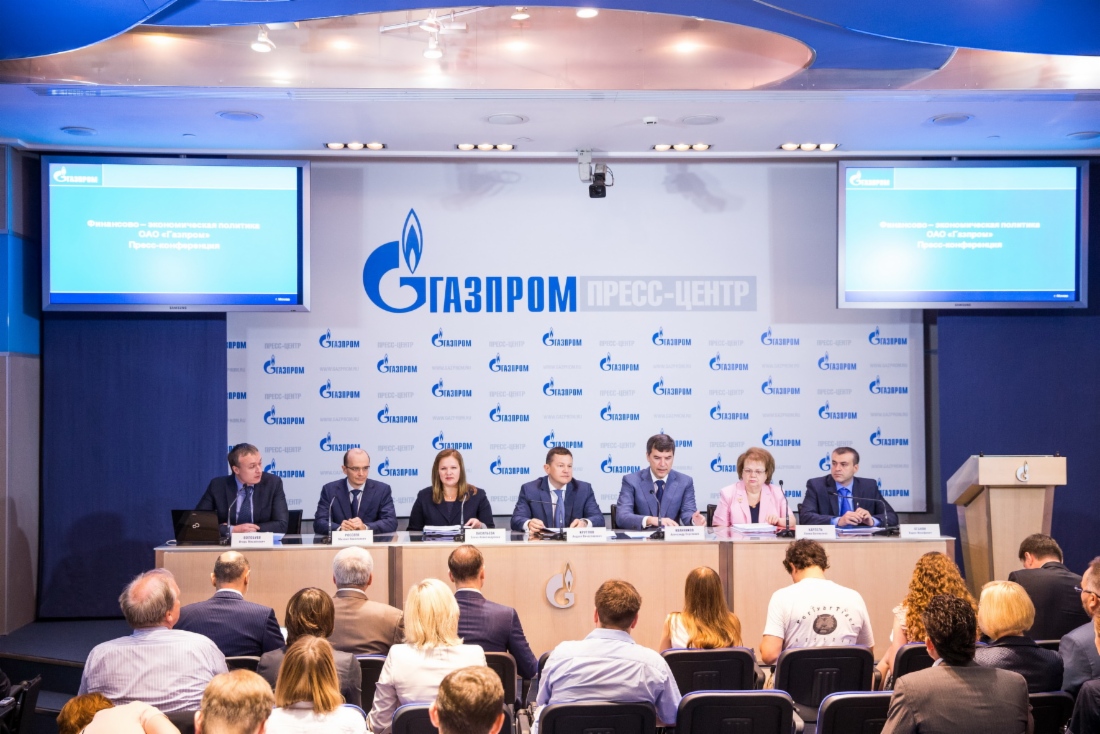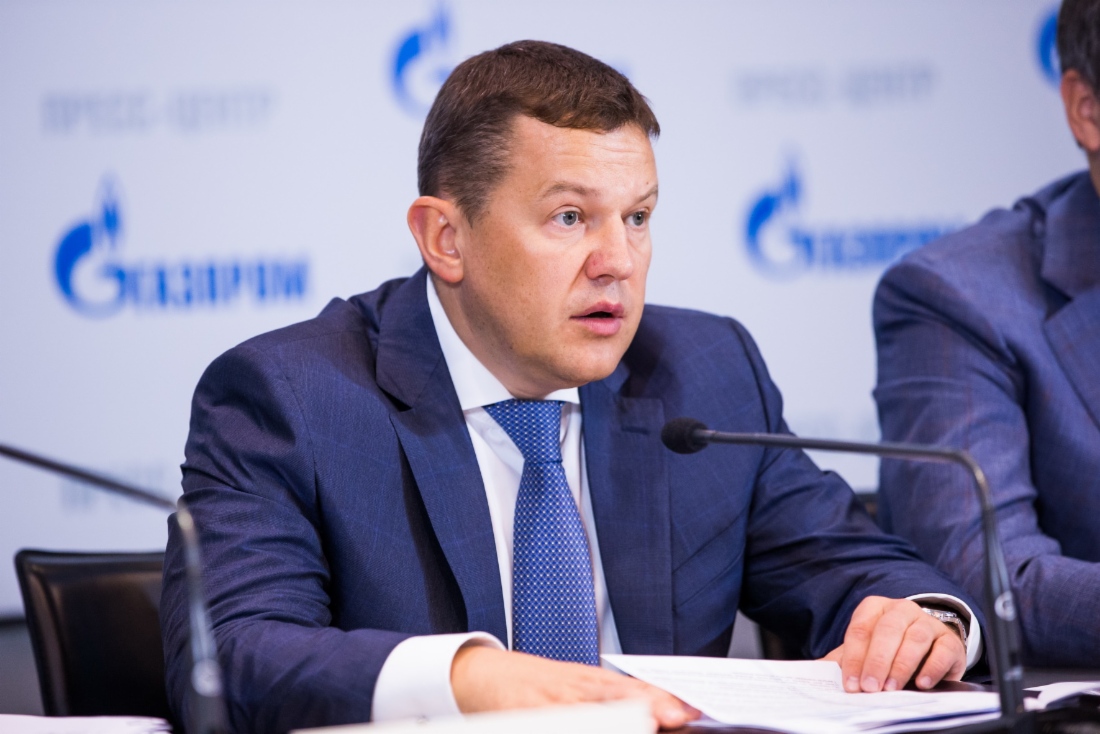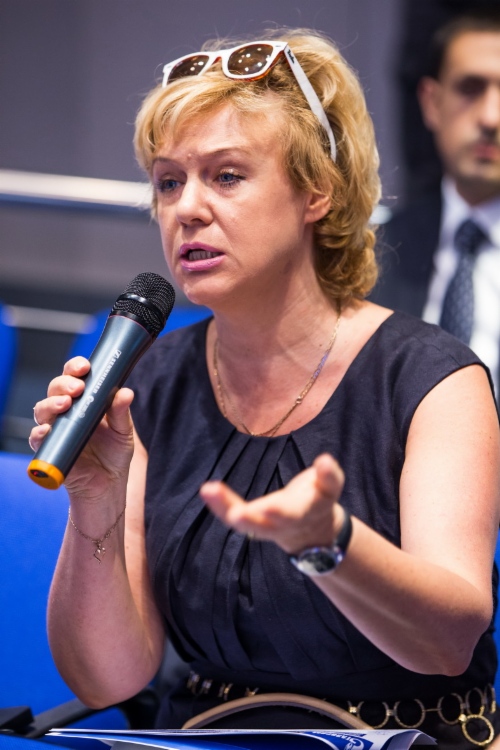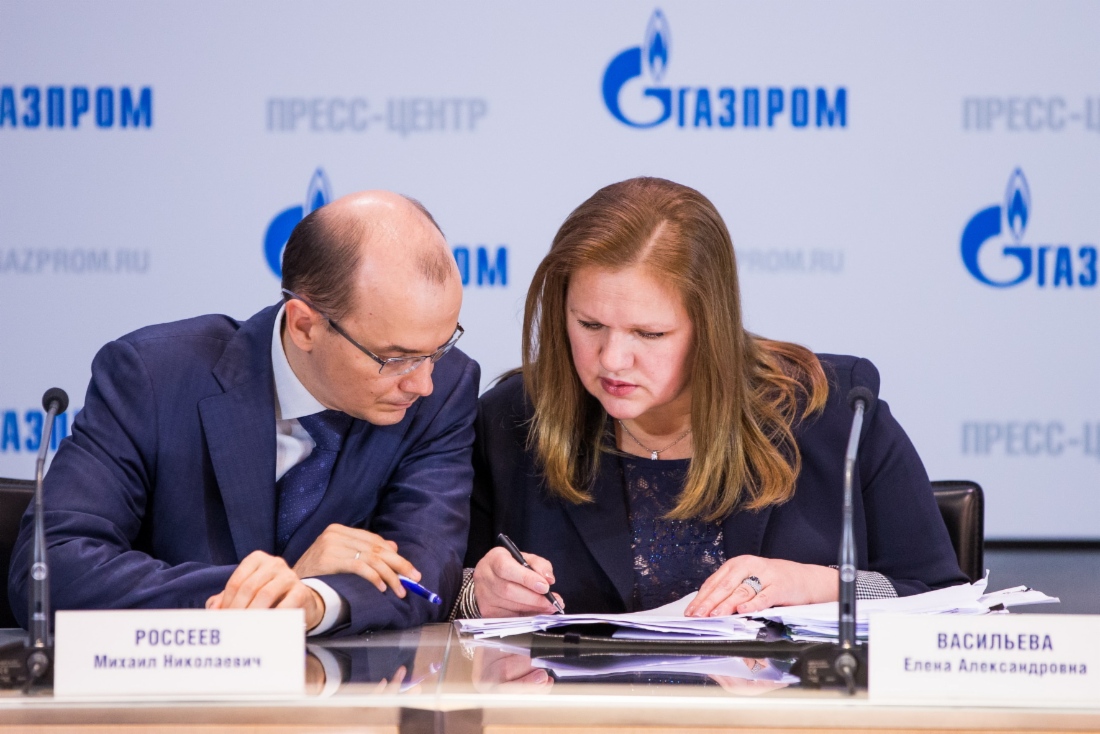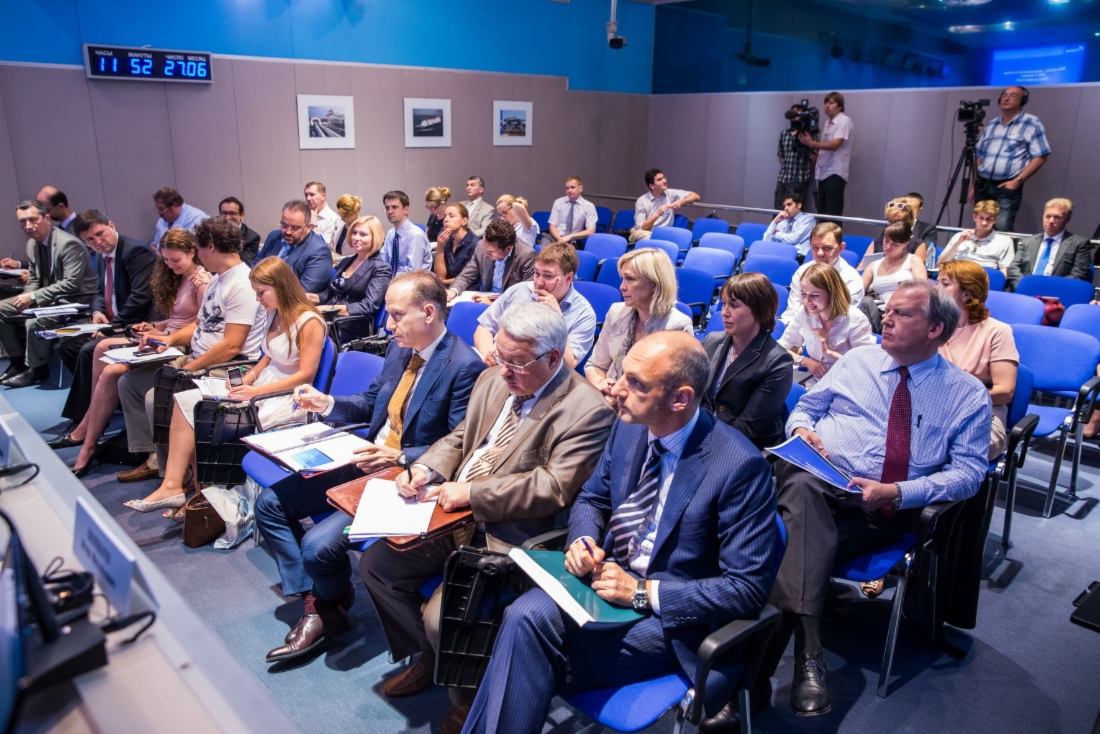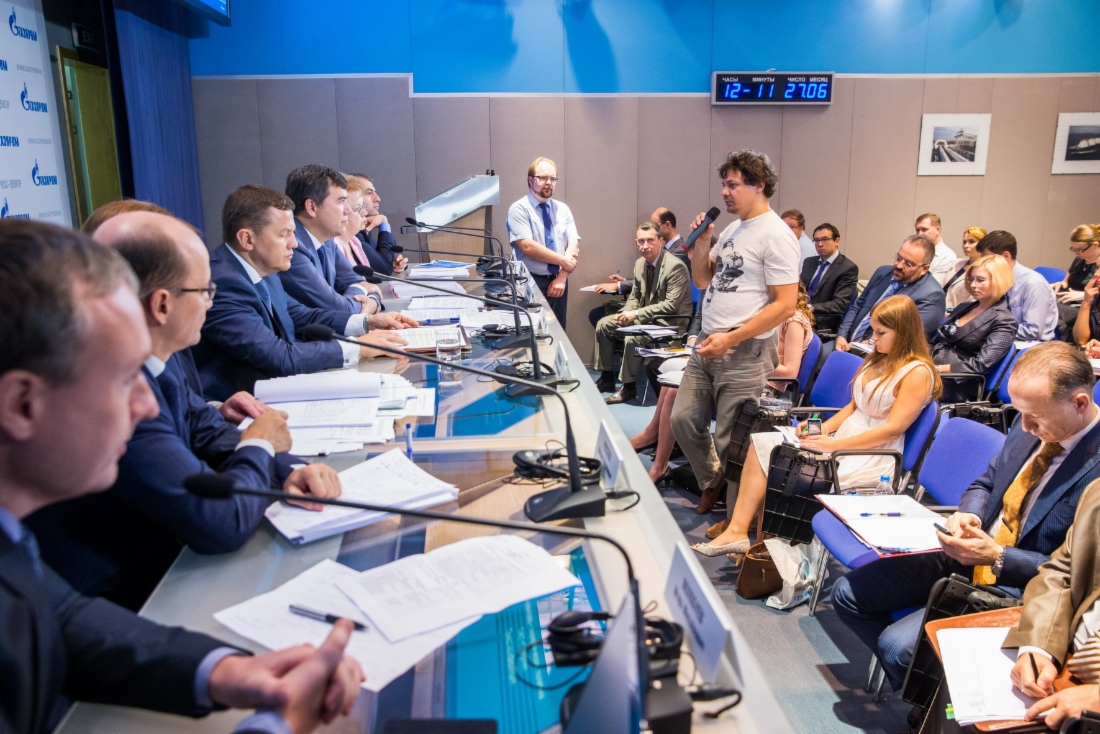Gazprom shows highest five-year net profit growth among major oil and gas companies
Release
On the threshold of Gazprom's annual General Shareholders Meeting the Company's headquarters hosted today the Press Conference “Gazprom's Financial and Economic Policy”. Taking part in the Press Conference were Andrey Kruglov, Deputy Chairman of the Management Committee, Head of the Department for Finance and Economics, Elena Vasilieva, Deputy Chairwoman of the Management Committee, Chief Accountant, Elena Karpel, Head of the Pricing and Economic Expert Analysis Department, Karen Oganyan, Head of the Tax Policy Department, Alexander Ivannikov, First Deputy Head of the Department for Finance and Economics and Mikhail Rosseev, Deputy Chief Accountant.
It was highlighted at the event that Gazprom was showing a positive financial performance against the background of unfavorable economic conditions. The average increase in Gazprom's net profit during the recent five years amounted to 8 per cent, whereas the average decrease among major oil and gas companies totaled 1 per cent in the respective period.
In 2012 Gazprom showed a positive profit trend, earning RUB 4.8 trillion (USD 153.2 billion).
The amount of net profit and EBITDA as of the end of 2012 enabled Gazprom to maintain its position among top five major global public companies. Following the last year's results, the net profit totaled RUB 1.183 trillion (USD 38 billion), adjusted EBITDA – RUB 1.573 trillion (about USD 51 billion), having lowered down as compared to the last year. A decline in financial performance was primarily caused by the growth in tax burden and retroactive payments under certain export contracts.
At the same time, a reduction in capital investments by 14 per cent in 2012 contributed to the increase in the Company's free cash flow to RUB 106 billion.
For many years Gazprom has been the major Russian budget contributor. From 2009 to 2012 total tax payments grew by 71 per cent and exceeded RUB 1.9 trillion in 2012. The growth was primarily due to the increase in the severance tax. In the said period the Company's severance tax payments grew by more than RUB 262 billion or almost three times.
Taking into account the forthcoming increase in the severance tax rate by 6.9 per cent from July 1, the average annual rate of the gas severance tax between 2009 and 2013 will grow 4.1 times for Gazprom and 2.3 times – for independent producers.
The growth of the severance tax rate on gas starting from early 2012 caused an increase in Gazprom's production costs. Compared with 2011 this figure grew by 57 per cent, whereas exclusive of the severance tax rate growth the increase totaled 16 per cent.
Gazprom's opinion is that a stable tax regime providing for a fair severance tax rate on gas is required for the gas industry to secure its normal functioning and further development.
The Russian Government submitted draft amendments into the Russian Tax Code for consideration by the State Duma. The draft introduces a formula to calculate the severance tax rate on gas and gas condensate. The formula is expected to come into effect from January 1, 2014. A transportation component will be included into it from January 1, 2015 taking into account additional expenses incurred by independent gas suppliers when the growth rates of gas transportation tariff surpass the inflation level. It means that if the transportation tariff surpasses the inflation level, the severance tax rate for independent suppliers will be reduced through a partial deduction of their transportation expenses, while the severance tax rate for Gazprom will increase by the same volume.
Gazprom is opposed to the transportation component as it contradicts the economic sense of the severance tax, disagrees with the basics of tax legislation and creates additional competitive advantages for one group of market players above the other one.
The Company is taking comprehensive measures aimed at restraining the costs increase, inter alia, by implementing the Cost Reduction Program: in 2012 its total cost saving effect equaled RUB 31.3 billion, and RUB 14.4 billion is forecasted to be saved in 2013. Besides, Gazprom optimizes costs at the budget formation stage and executes cost optimization plans in individual activity areas.
Gazprom pays special attention to restraining the growth of prices for major materials and equipment, including pipe products. In 2012 a total of RUB 19.6 billion was saved as a result of cost reduction for major materials and equipment.
According to 2012 results, Gazprom Group's total debt was RUB 1.505 trillion, net debt – RUB 1.082 trillion. The debt amount remains at a level comfortable for Gazprom, which is proven by the relative debt ratios. Thus, following the 2012 results, the total debt/adjusted EBITDA ratio stood at 1 having slightly increased from 0.8 since 2011.
The Press Conference also considered other issues related to the current and future financial and economic activities of Gazprom.


